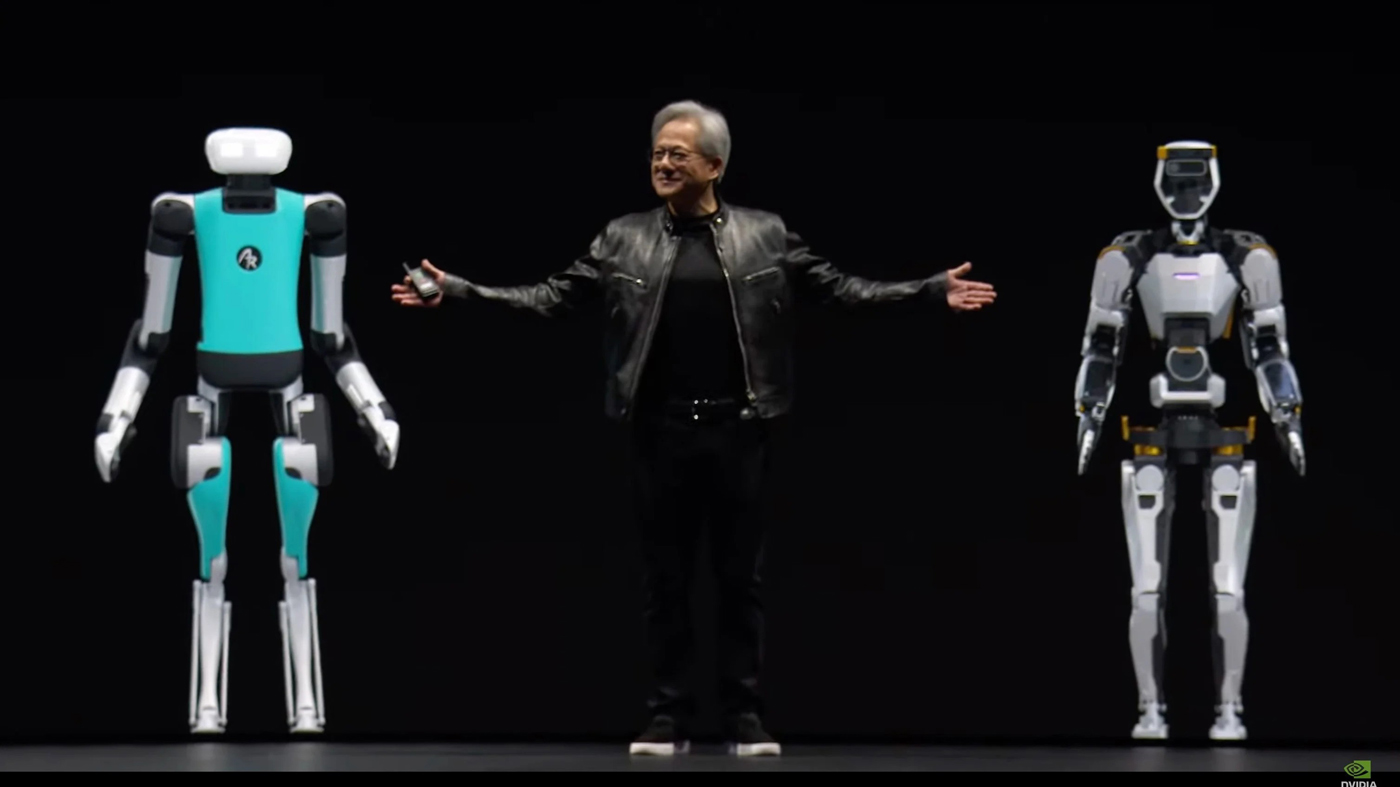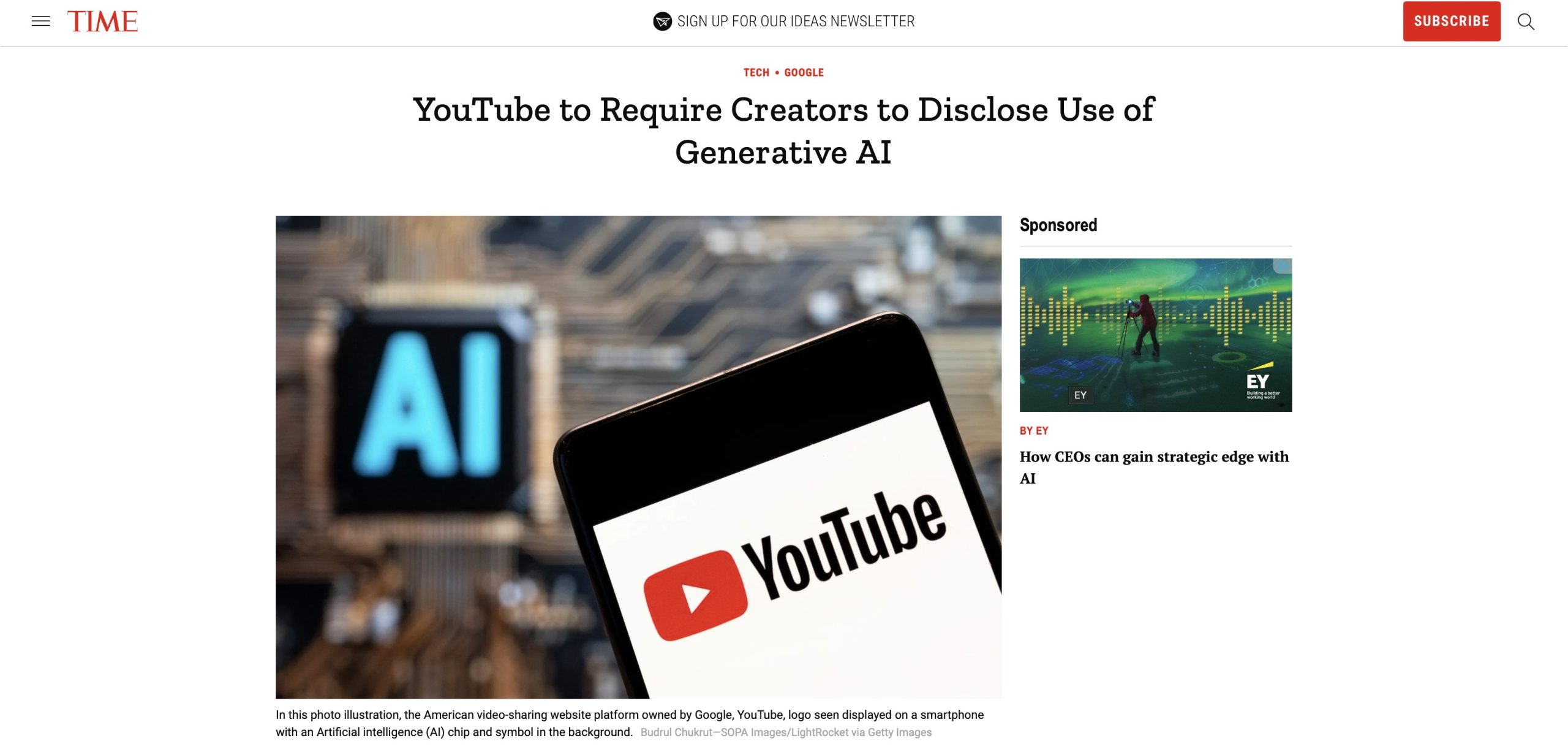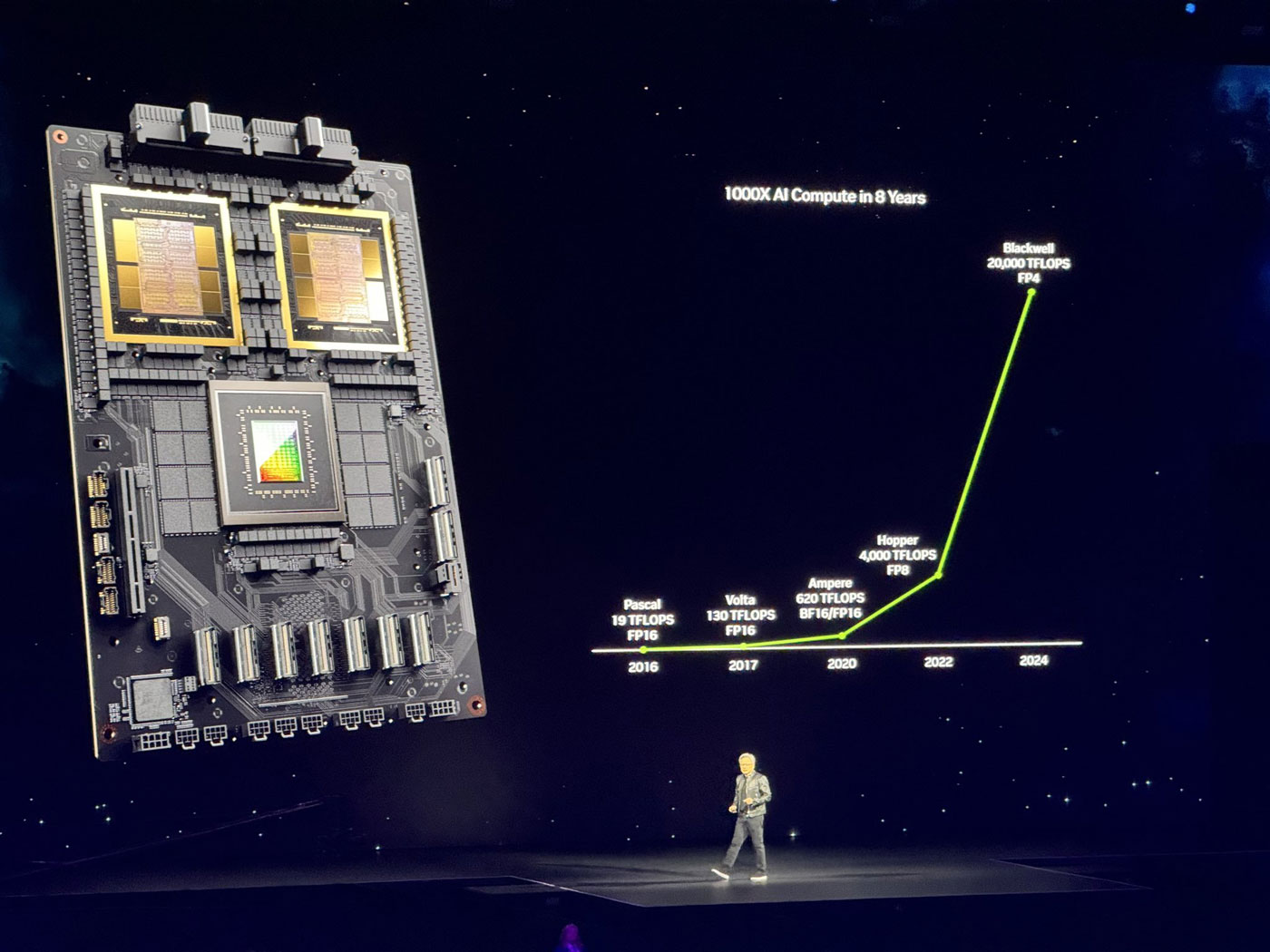Google DeepMind’s Med-Gemini project has taken another leap forward with […]
Tim Cook, Apple’s CEO, is expected to foreshadow the company’s […]
Project Devika is a novel open-source initiative aiming to develop […]
Get ready to dust off your old photo albums. Google […]
In a late-night tweet yesterday, Elon Musk sent a jolt […]
Elon Musk’s Neuralink grabbed headlines this week, unveiling the first […]
editor’s pick
In a surprising turn of events, the AI-powered search engine Perplexity has surpassed Bing on the App Store, reaching #15 in the productivity category as of February 2nd, 2024. This development marks a significant milestone for the young search engine, challenging the dominance of established players like Bing and Google.
Perplexity, launched in 2022, leverages advanced AI models to deliver more comprehensive and contextually relevant search results compared to traditional keyword-based search. Its interactive “Copilot” feature further differentiates it, allowing users to delve deeper into complex topics through an ongoing, conversational-style exchange with the AI. This innovative approach appears to be resonating with users, as evidenced by its impressive rise in the App Store charts.
This development suggests a growing appetite for more intelligent and engaging search experiences. While Perplexity’s current lead over Bing may be modest, it signifies a potential shift in the search landscape. It will be interesting to see how established players respond to this challenge and how Perplexity continues to evolve its offerings to solidify its position in the ever-competitive search market.
Perplexity’s journey began in 2020, founded by a team of AI and search experts with a bold vision: to revolutionize the way we interact with information. The team recognized the limitations of traditional keyword-based search engines and sought to create a more intuitive and comprehensive experience.
Fueled by this ambition, Perplexity officially launched in 2022, equipped with advanced AI models capable of understanding complex queries and delivering contextually relevant results. Unlike its predecessors, Perplexity didn’t solely rely on keyword matching but leveraged natural language processing (NLP) to grasp the deeper intent behind searches. This allowed for more nuanced and accurate results, paving the way for a genuinely conversational search experience.
Perplexity’s innovative “Copilot” feature further solidified its unique approach. This interactive functionality enables users to engage in an ongoing dialogue with the AI, asking follow-up questions and refining their search with each interaction. This dynamic process allows for a deeper exploration of topics, fostering a more holistic understanding of information.
Within a short period, Perplexity has garnered significant attention for its groundbreaking approach. This early success suggests a growing demand for AI-powered search experiences that cater to the nuances of human inquiry. As Perplexity continues to evolve and refine its technologies, its impact on the future of search remains an exciting prospect to watch.
In a surprising turn of events, the AI-powered search engine Perplexity has surpassed Bing on the App Store, reaching #15 in the productivity category as of February 2nd, 2024. This development marks a significant milestone for the young search engine, challenging the dominance of established players like Bing and Google.
Perplexity, launched in 2022, leverages advanced AI models to deliver more comprehensive and contextually relevant search results compared to traditional keyword-based search. Its interactive “Copilot” feature further differentiates it, allowing users to delve deeper into complex topics through an ongoing, conversational-style exchange with the AI. This innovative approach appears to be resonating with users, as evidenced by its impressive rise in the App Store charts.
This development suggests a growing appetite for more intelligent and engaging search experiences. While Perplexity’s current lead over Bing may be modest, it signifies a potential shift in the search landscape. It will be interesting to see how established players respond to this challenge and how Perplexity continues to evolve its offerings to solidify its position in the ever-competitive search market.
Perplexity’s journey began in 2020, founded by a team of AI and search experts with a bold vision: to revolutionize the way we interact with information. The team recognized the limitations of traditional keyword-based search engines and sought to create a more intuitive and comprehensive experience.
Fueled by this ambition, Perplexity officially launched in 2022, equipped with advanced AI models capable of understanding complex queries and delivering contextually relevant results. Unlike its predecessors, Perplexity didn’t solely rely on keyword matching but leveraged natural language processing (NLP) to grasp the deeper intent behind searches. This allowed for more nuanced and accurate results, paving the way for a genuinely conversational search experience.
Perplexity’s innovative “Copilot” feature further solidified its unique approach. This interactive functionality enables users to engage in an ongoing dialogue with the AI, asking follow-up questions and refining their search with each interaction. This dynamic process allows for a deeper exploration of topics, fostering a more holistic understanding of information.
Within a short period, Perplexity has garnered significant attention for its groundbreaking approach. This early success suggests a growing demand for AI-powered search experiences that cater to the nuances of human inquiry. As Perplexity continues to evolve and refine its technologies, its impact on the future of search remains an exciting prospect to watch.
In a surprising turn of events, the AI-powered search engine Perplexity has surpassed Bing on the App Store, reaching #15 in the productivity category as of February 2nd, 2024. This development marks a significant milestone for the young search engine, challenging the dominance of established players like Bing and Google.
Perplexity, launched in 2022, leverages advanced AI models to deliver more comprehensive and contextually relevant search results compared to traditional keyword-based search. Its interactive “Copilot” feature further differentiates it, allowing users to delve deeper into complex topics through an ongoing, conversational-style exchange with the AI. This innovative approach appears to be resonating with users, as evidenced by its impressive rise in the App Store charts.
This development suggests a growing appetite for more intelligent and engaging search experiences. While Perplexity’s current lead over Bing may be modest, it signifies a potential shift in the search landscape. It will be interesting to see how established players respond to this challenge and how Perplexity continues to evolve its offerings to solidify its position in the ever-competitive search market.
Perplexity’s journey began in 2020, founded by a team of AI and search experts with a bold vision: to revolutionize the way we interact with information. The team recognized the limitations of traditional keyword-based search engines and sought to create a more intuitive and comprehensive experience.
Fueled by this ambition, Perplexity officially launched in 2022, equipped with advanced AI models capable of understanding complex queries and delivering contextually relevant results. Unlike its predecessors, Perplexity didn’t solely rely on keyword matching but leveraged natural language processing (NLP) to grasp the deeper intent behind searches. This allowed for more nuanced and accurate results, paving the way for a genuinely conversational search experience.
Perplexity’s innovative “Copilot” feature further solidified its unique approach. This interactive functionality enables users to engage in an ongoing dialogue with the AI, asking follow-up questions and refining their search with each interaction. This dynamic process allows for a deeper exploration of topics, fostering a more holistic understanding of information.
Within a short period, Perplexity has garnered significant attention for its groundbreaking approach. This early success suggests a growing demand for AI-powered search experiences that cater to the nuances of human inquiry. As Perplexity continues to evolve and refine its technologies, its impact on the future of search remains an exciting prospect to watch.
In a surprising turn of events, the AI-powered search engine Perplexity has surpassed Bing on the App Store, reaching #15 in the productivity category as of February 2nd, 2024. This development marks a significant milestone for the young search engine, challenging the dominance of established players like Bing and Google.
Perplexity, launched in 2022, leverages advanced AI models to deliver more comprehensive and contextually relevant search results compared to traditional keyword-based search. Its interactive “Copilot” feature further differentiates it, allowing users to delve deeper into complex topics through an ongoing, conversational-style exchange with the AI. This innovative approach appears to be resonating with users, as evidenced by its impressive rise in the App Store charts.
This development suggests a growing appetite for more intelligent and engaging search experiences. While Perplexity’s current lead over Bing may be modest, it signifies a potential shift in the search landscape. It will be interesting to see how established players respond to this challenge and how Perplexity continues to evolve its offerings to solidify its position in the ever-competitive search market.
Perplexity’s journey began in 2020, founded by a team of AI and search experts with a bold vision: to revolutionize the way we interact with information. The team recognized the limitations of traditional keyword-based search engines and sought to create a more intuitive and comprehensive experience.
Fueled by this ambition, Perplexity officially launched in 2022, equipped with advanced AI models capable of understanding complex queries and delivering contextually relevant results. Unlike its predecessors, Perplexity didn’t solely rely on keyword matching but leveraged natural language processing (NLP) to grasp the deeper intent behind searches. This allowed for more nuanced and accurate results, paving the way for a genuinely conversational search experience.
Perplexity’s innovative “Copilot” feature further solidified its unique approach. This interactive functionality enables users to engage in an ongoing dialogue with the AI, asking follow-up questions and refining their search with each interaction. This dynamic process allows for a deeper exploration of topics, fostering a more holistic understanding of information.
Within a short period, Perplexity has garnered significant attention for its groundbreaking approach. This early success suggests a growing demand for AI-powered search experiences that cater to the nuances of human inquiry. As Perplexity continues to evolve and refine its technologies, its impact on the future of search remains an exciting prospect to watch.
In a surprising turn of events, the AI-powered search engine Perplexity has surpassed Bing on the App Store, reaching #15 in the productivity category as of February 2nd, 2024. This development marks a significant milestone for the young search engine, challenging the dominance of established players like Bing and Google.
Perplexity, launched in 2022, leverages advanced AI models to deliver more comprehensive and contextually relevant search results compared to traditional keyword-based search. Its interactive “Copilot” feature further differentiates it, allowing users to delve deeper into complex topics through an ongoing, conversational-style exchange with the AI. This innovative approach appears to be resonating with users, as evidenced by its impressive rise in the App Store charts.
This development suggests a growing appetite for more intelligent and engaging search experiences. While Perplexity’s current lead over Bing may be modest, it signifies a potential shift in the search landscape. It will be interesting to see how established players respond to this challenge and how Perplexity continues to evolve its offerings to solidify its position in the ever-competitive search market.
Perplexity’s journey began in 2020, founded by a team of AI and search experts with a bold vision: to revolutionize the way we interact with information. The team recognized the limitations of traditional keyword-based search engines and sought to create a more intuitive and comprehensive experience.
Fueled by this ambition, Perplexity officially launched in 2022, equipped with advanced AI models capable of understanding complex queries and delivering contextually relevant results. Unlike its predecessors, Perplexity didn’t solely rely on keyword matching but leveraged natural language processing (NLP) to grasp the deeper intent behind searches. This allowed for more nuanced and accurate results, paving the way for a genuinely conversational search experience.
Perplexity’s innovative “Copilot” feature further solidified its unique approach. This interactive functionality enables users to engage in an ongoing dialogue with the AI, asking follow-up questions and refining their search with each interaction. This dynamic process allows for a deeper exploration of topics, fostering a more holistic understanding of information.
Within a short period, Perplexity has garnered significant attention for its groundbreaking approach. This early success suggests a growing demand for AI-powered search experiences that cater to the nuances of human inquiry. As Perplexity continues to evolve and refine its technologies, its impact on the future of search remains an exciting prospect to watch.
latest video
news via inbox
Nulla turp dis cursus. Integer liberos euismod pretium faucibua




